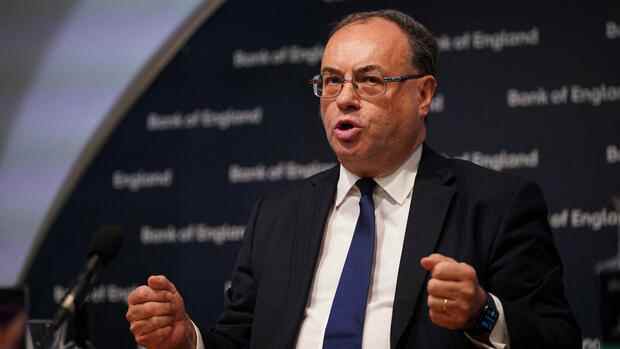This is particularly unheard of because central banks normally lower interest rates in times of economic crisis in order to help consumers and companies get back on their feet with cheap money. However, in the current stagflation, with inflation heading for 13 percent and the economy barely growing, a money keeper’s first duty is to restore price stability – even at the expense of a recession.
However, one does not make friends with such drastic treatment. Especially not in the case of ambitious politicians who want to become prime minister and have promised the party people massive tax cuts in return. The Bank of England is “talking Britain into a recession”, the Conservative Liz Truss rumbled, and announced that it would review the mandate of the central bank should the Tories elect her as party leader and thus as the new head of government on September 5th. Although the government still sets the inflation target today, the Bank of England has been operationally independent since 1997.
Fed chairman Bailey is not just fighting a multi-front economic war against inflation and recession. He is also still in the political pillory for this and has to fear for the political independence of the Bank of England. The 63-year-old therefore had to do what central bankers dislike the most: throw himself into a public debate.
Top jobs of the day
Find the best jobs now and
be notified by email.
Liz Truss, UK Foreign Secretary and Conservative Party leader, during a televised debate last Thursday.
(Photo: dpa)
“If we don’t act now, we’re only going to make things worse,” Bailey said in a lengthy interview with the BBC, defending the rate hike. At the same time, he dismissed the accusation by Truss and other conservatives that the BoE should have acted much earlier: “I would challenge anyone who sat here two years ago and said there was going to be a war in Ukraine.”
However, he is not entirely comfortable in his own skin. After all, he knows that the central bank will have trouble explaining itself if it is supposed to keep inflation at two percent but prices are supposed to rise by more than 13 percent in the near future. Bailey suspects that the economic pain he is putting his compatriots through to put things right is considerable: British household real incomes are expected to fall by 3.7 percent by the end of 2023 – the sharpest loss of prosperity in 60 years.
Not being considered the best communicator makes Bailey an easy target in the political arena. When he said in the spring that the BoE was “powerless” against high energy prices and supply shortages, he gave the impression that the old lady had already capitulated to inflation. Shortly thereafter, the central bank governor further unsettled his compatriots when he described the high food prices as “apocalyptic”. The fact that he was at the same time advising workers suffering from the high cost of living not to overdo it with their wage demands only made matters worse.
Technocrat in political hand-to-hand combat
Like most of his peers, Bailey prefers to think of himself as an independent technocrat doing the best he can in his job of keeping prices stable. In a crash course, the historian, who was trained at the elite university of Cambridge, now learns that his job is inherently political if he wants to defend the independence of the Bank of England.
So far, Truss has only spoken vaguely of putting the BoE’s mandate to the test. However, the fact that their followers are already making the central bank and its boss the scapegoat for the impending recession bodes ill.
As a precaution, Bailey has therefore signaled that he does not want to give up his independence without a fight: It is part of the independence of the Bank of England that it cannot be influenced by changes in government. At the same time, the governor confirmed that he wanted to fulfill his contract, which runs until 2028. Great Britain is therefore facing difficult and unsettled times.
More: High interest rates, major concerns: Bank of England accepts recession
